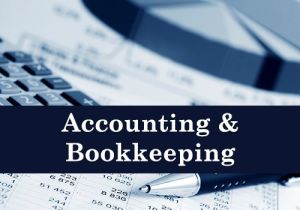The Role of Accounting in Detecting and Preventing Fraud

Fraud can silently destroy a business, shaking its foundation, tarnishing its reputation, and draining its resources without warning. As financial crime becomes more complex and technology evolves rapidly, organizations are realizing the importance of robust internal controls and ethical accounting practices. Accounting plays a pivotal role in identifying and preventing fraudulent activities before they spiral out of control. This is not just a back-office function anymore—accounting has transformed into a frontline defense mechanism against fraud.
While forensic accounting and advanced audits have garnered attention, even day-to-day accounting procedures can serve as a powerful tool for identifying inconsistencies, red flags, or potential financial misconduct. Whether you’re running a small business, managing a startup, or steering a large enterprise, understanding how accounting contributes to fraud detection can safeguard your business and ensure financial integrity. The modern accountant is not just a number cruncher but a fraud watchdog who protects every dollar.
Understanding the Relationship Between Accounting and Fraud Detection
Accounting isn’t just about tracking income and expenses—it’s a gateway to understanding the financial heartbeat of an organization. Fraud typically leaves a trail, often subtle but detectable by trained eyes analyzing financial documents, transactions, and reports. When accountants maintain accurate records and reconcile accounts frequently, they increase the likelihood of uncovering anomalies.
Properly executed accounting functions reveal inconsistencies, such as unexplained cash shortfalls, inflated expenses, or irregular invoice activity. These signs might seem insignificant in isolation but can indicate broader fraudulent patterns when seen over time. With internal controls in place, accounting processes such as audits, reconciliations, and segregation of duties create an environment that makes it difficult for fraud to go unnoticed or unchallenged.
Accountants act as investigators, leveraging analytical tools and ethical scrutiny to monitor financial behavior within the business. Their ability to interpret financial data objectively helps identify discrepancies and initiate internal investigations before external authorities become involved. This early intervention reduces financial loss and protects business continuity.
Internal Controls and Their Significance in Preventing Fraud
Internal controls are the first line of defense in any organization’s anti-fraud strategy. Through accounting, businesses implement and maintain these safeguards to minimize the risk of fraud. Internal controls are procedures and policies that ensure financial integrity and accountability throughout the organization.
For example, assigning separate individuals to approve payments, record transactions, and handle assets helps prevent fraudulent activities by reducing the opportunity for any single person to manipulate records for personal gain. Regularly rotating duties and requiring management approval for high-value transactions are accounting-driven controls that further reduce the chances of unethical conduct.
These measures are especially effective in industries where cash handling, vendor payments, or inventory management are involved. Accounting professionals play a critical role in designing these systems and making sure they evolve with the business. They continually assess the adequacy of controls and recommend changes to close loopholes that fraudsters might exploit.
How Modern Accounting Tools Detect Fraud in Real Time
Today’s accounting software goes beyond basic number tracking—it uses artificial intelligence and real-time analytics to flag suspicious behavior. From sudden vendor changes to repetitive invoice patterns, modern accounting tools can automatically detect signs of fraud and alert the appropriate personnel.
Many accounting platforms incorporate fraud detection features that analyze large volumes of data, recognize trends, and identify outliers. These outliers may represent unauthorized expenses, duplicate payments, or fabricated transactions. Real-time monitoring means fraud can be detected and halted before it becomes a larger issue.
In addition, accounting teams use advanced data visualization to spot inconsistencies that wouldn’t be obvious from a spreadsheet alone. These digital solutions bring speed and precision to the fraud detection process, allowing accountants to move from reactive to proactive financial monitoring.
Training and Ethical Standards in Fraud Prevention
The role of accounting in fraud prevention goes beyond systems and controls—it includes fostering a culture of ethics and accountability. Accounting professionals are held to high ethical standards, and this integrity is essential in detecting fraudulent behavior. When accountants are properly trained in recognizing red flags and maintaining objectivity, they become trustworthy watchdogs for the organization.
Regular training sessions help accountants stay current with new fraud tactics, regulatory changes, and best practices in financial oversight. This education is critical as fraudsters grow more sophisticated and look for new ways to exploit systems. Through education and ethical reinforcement, accountants gain the tools and mindset necessary to protect the company’s financial interests.
Moreover, ethical accountants set an example across departments. Their transparent behavior encourages others to adopt the same standards, reducing the likelihood of internal fraud originating from other areas of the business. A workplace rooted in financial ethics is far less susceptible to fraud.
Investigating Irregularities and Supporting Legal Action
When fraud is suspected, accounting professionals often lead the internal investigation process. They trace financial records, reconstruct transactions, and gather evidence that can confirm or disprove the presence of misconduct. Their detailed documentation provides the backbone for legal proceedings or internal disciplinary actions.
This investigative role is crucial for protecting the business and ensuring justice is served. Accountants don’t just identify the issue—they help resolve it by presenting evidence, supporting HR or legal teams, and creating new protocols to prevent recurrence. Their reports become part of the official record and can be used in court or during arbitration.
Even more importantly, accountants identify the root causes that enabled the fraud. Whether it was a system vulnerability, a lack of oversight, or employee collusion, accounting teams are instrumental in analyzing how and why fraud occurred. With that insight, they can recommend changes that prevent future incidents.
Accounting Services in Boca Raton, FL: A Local Example of Fraud Prevention in Practice
Accounting Services in Boca Raton, FL are a great example of how local expertise supports businesses in detecting and preventing fraud. These firms offer tailored financial solutions, combining traditional bookkeeping with advanced fraud monitoring tools and ethical advisory.
By staying engaged with their clients’ financial processes, these service providers offer continuous insights that make it harder for fraudulent activity to slip through unnoticed. They conduct routine audits, set up internal control systems, and use technology to track and report suspicious transactions.
These professionals are not just service providers—they’re strategic partners who understand the regional business landscape and provide guidance specific to local industries. Their familiarity with state regulations and compliance requirements helps their clients stay ahead of fraud risks and build trust with stakeholders.
Building Fraud-Resilient Businesses Through Proactive Accounting
Accounting can no longer be treated as an afterthought—it must be embedded into the business strategy from the beginning. Businesses that involve accounting professionals in strategic planning gain insights that help them allocate resources, minimize financial risk, and protect company assets.
Proactive accounting goes beyond recordkeeping. It involves forecasting financial performance, analyzing variances, and identifying warning signs before they escalate. Businesses that engage in regular financial health assessments are better equipped to handle fraud threats and respond effectively.
When accountants are involved in cross-departmental decisions, such as vendor selection or budget approvals, they bring a layer of scrutiny that ensures transparency and accountability. This cross-functional involvement makes it difficult for bad actors to manipulate systems in the background.
Bookkeeping Service in Boca Raton, FL: Ensuring Financial Accuracy at the Ground Level
At the heart of every successful fraud prevention effort is accurate, timely, and consistent financial data. A trusted Bookkeeping Service in Boca Raton, FL can provide that foundation. Bookkeepers ensure that all transactions are properly recorded, accounts are balanced, and documentation is maintained.
This accuracy creates a transparent financial environment where discrepancies become immediately visible. A missed entry, unusual payment, or inconsistent invoice won’t go unnoticed when bookkeeping is conducted with care. This attention to detail acts as the first barrier against fraud.
With dependable bookkeeping in place, accountants can perform deeper analyses with confidence, knowing the data they’re reviewing is correct. This synergy between bookkeeping and accounting builds a more fraud-resistant financial system—one that protects the business from both internal and external threats.
click here to visit website for more interesting collection of articles







